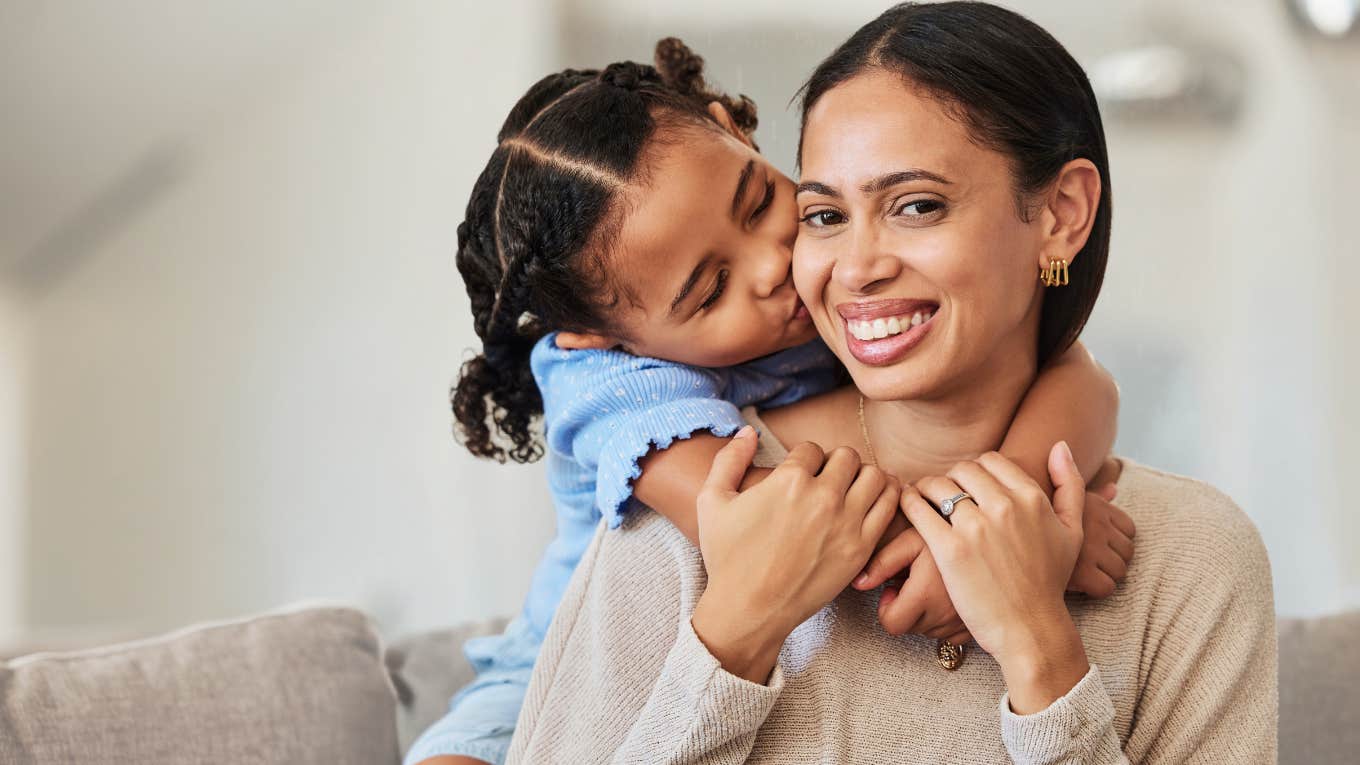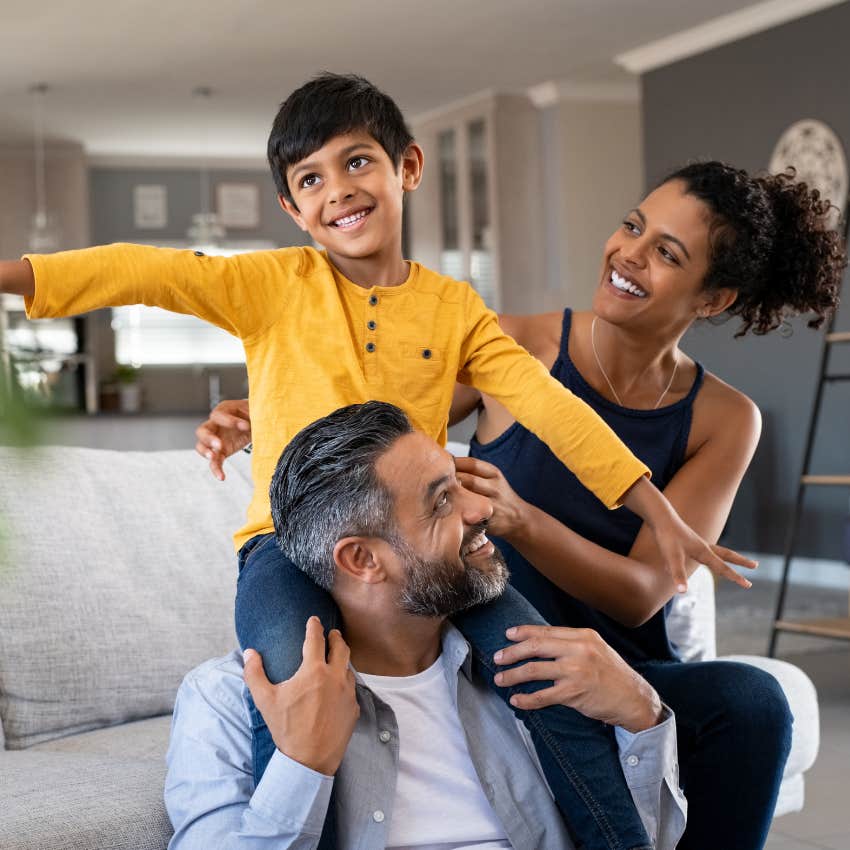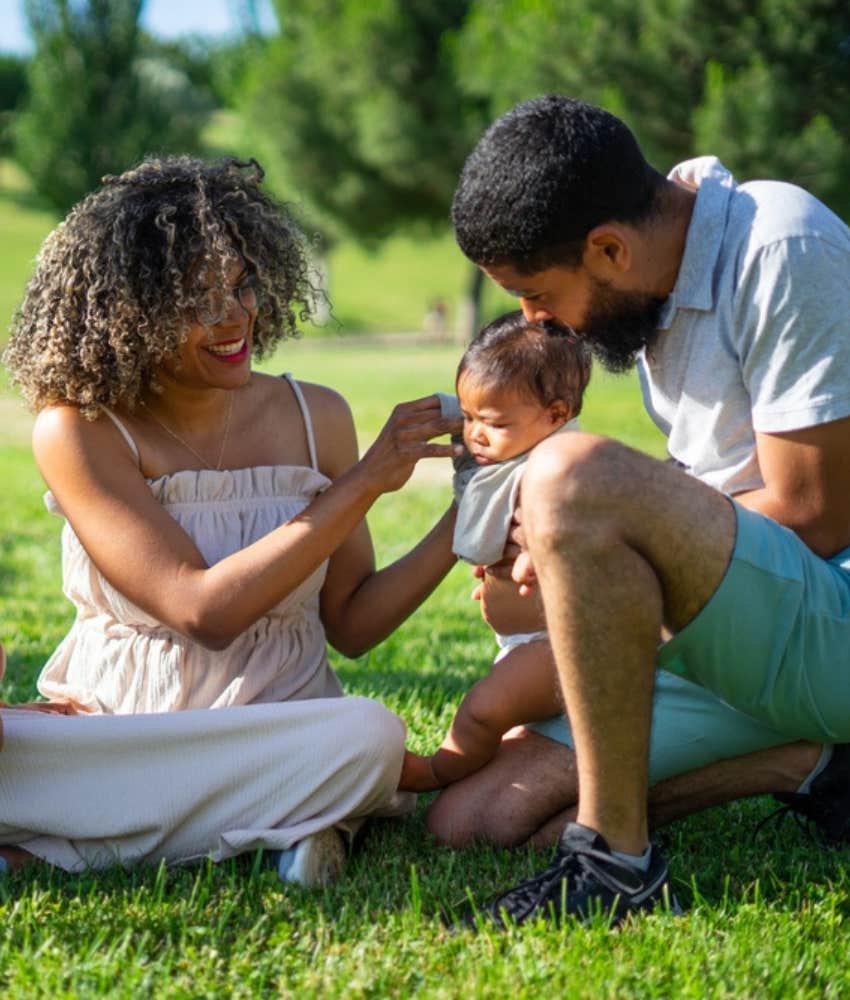Mom Wonders If Parents With 2 Or More Kids Have A 'Favorite' — 'You Aren't Supposed To Say It Out Loud'
While it might be a taboo question, the responses are surprisingly honest.
 People Images Yuri A / Shutterstock.com
People Images Yuri A / Shutterstock.com If you grew up with siblings, the favorite inside joke is always which child is mom and dad's favorite. Sure, parents will forever deny it, at least when asked directly, but that doesn't mean it's not true.
A new mom took to Reddit to find out once and for all, if the favorite kid thing is real or not, and the responses she got were surprisingly honest.
A new mom asked parents with 2 or more kids if they secretly had a 'favorite’ child.
While many parents simply said “no,” others went into detail about their specific family dynamics. Many, while still recognizing the toxicity favoritism could cause in family structures, argued that there are always “differences” in their children which creates different bonds and connections.
“We have three kids. I don’t have a favorite,” one commenter noted. “However, I do have things that I prefer to do with one over the other. Partly, this is because of age, though. A day out with a 9-year-old is a lot easier than with a 4-year-old.”
 Ground Picture / Shutterstock.com
Ground Picture / Shutterstock.com
Some commenters condemned parents who admitted to having secret favorites, saying it's more obvious than you realize. “Do NOT do this as parents,” one wrote, “it will ruin your children’s lives. My husband’s parents have a golden child (40 years old) who they financially support, nanny for, and clean for, and he has been functionally incapacitated by them in the sense that he can no longer do anything for himself.”
Despite controversy in the comments, most parents suggested they loved each of their kids uniquely — ‘I bond with them differently.’
While it’s completely acceptable to enjoy spending time with different children depending on the situation, most parents agreed that this kind of “favoritism” could grow into a beast of its own.
“Not every parent has a favorite child, but many do,” Jessica Griffin, an associate professor of psychiatry and pediatrics at the University of Massachusetts Medical School, told the BBC. “Data suggests that mothers, in particular, show favoritism to children who have similar values to them and that engage more with family, over qualities such as being highly ambitious or career-driven.”
Whether it’s dividing attention unequally or simply disconnecting with some children altogether, this kind of parenting often creates resentment in children, following them into adulthood.
 Aaaarianne | Shutterstock
Aaaarianne | Shutterstock
The thing about favoritism, especially in families, is it’s not really a secret — it’s contributing to an unhealthy family dynamic that’ll often disconnect familial relationships into adulthood. Many adult children have adopted “no contact” relationships with their parents because of this — they’ve been shamed for their uniqueness and forced to compete for attention, so much so that it’s driven them away.
Even parent-child relationships evolve over time. Most parents admitted they often ‘like’ one child more occasionally but still ‘love them’ all the same.
At the end of the day, like any other relationship, parent-child connections are inherently unique and will evolve over time in different ways. We’re all going to have different needs, interests, and connections with the people around us, especially as we grow, but that doesn’t or shouldn't change the love and support parents provide.
The toxicity in the conversation of “favoritism” isn’t necessarily stemming from discussions of “how” parents connect with their children, but rather how they sometimes fail to bond or show up for them while blinded by resentment or misguided views of “favoritism.” Parents who willingly weaponize favoritism by withholding support or basic necessities are part of the problem, as creator @floor_noidles on TikTok suggested.
Parents should support, care for, and love their children equitably, whether they agree with their beliefs, have similar interests, or are undergoing a difficult transitional period in their relationship.
This isn’t a romantic partnership or a friendship that can be simply put on “a back burner” with less committed time — this is a connection that’s not going anywhere. Even if you have a child who’s easier to bond with or more like your own interests, it’s still possible (and necessary) to give them the love and support they need to thrive.
“I have a favorite, but it changes depending on what we are doing,” one parent honestly admitted in the comments. “My daughter is my shopping buddy … my son is my ‘hang out’ buddy. I love both my kids; they are both my favorites, but I love them both and favor them in different ways. Equally, but different.”
Zayda Slabbekoorn is a News & Entertainment Writer at YourTango who focuses on health & wellness, social policy, and human interest stories.

